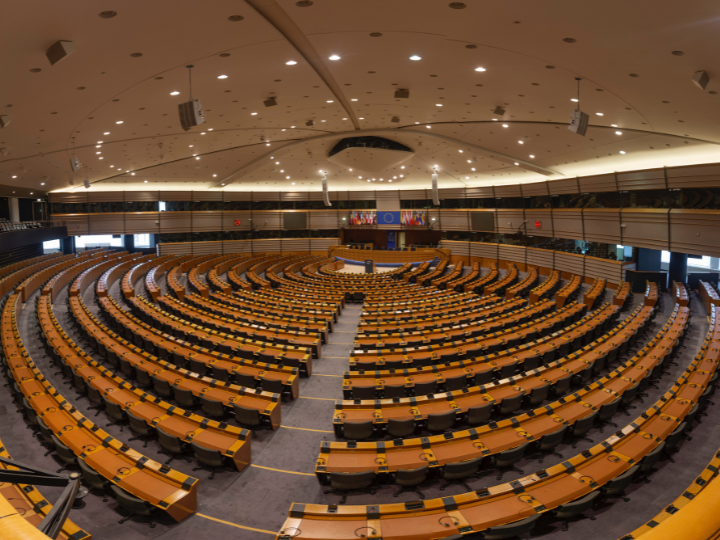A new EU-directive is likely to threaten investigative journalism throughout Europe. Its main objective is the protection against disclosure and theft of secret business information like patents, innovative technologies or recipes.

The main reason for concern is an unreasonably broad definition of "trade secrets". Companies could sue anyone who "unlawfully acquires, uses or discloses" a secret business information. Trade unions criticised that even informations about future mergers or redundancies could fall under the EU-directive.
by
Otmar Lahodynsky*
But NGOs and journalists’ associations warn that this directive could endanger freedom of expression and information. The main reason for concern is an unreasonably broad definition of "trade secrets". Companies could sue anyone who "unlawfully acquires, uses or discloses" a secret business information. Trade unions criticised that even informations about future mergers or redundancies could fall under the EU-directive. As employees would have to keep some business-informations secret they might face problems when starting a new job in another company. Thus the mobility of workers in the EU – considered as one of the four freedoms in the internal market – could be reduced.
Safeguards for freedom of expression and information are considered to be inadequate for journalists or whistleblowers as they would have to proof that a disclosure of a "trade secret" lies in the public interest. (See Article 4 of the directive). In addition, journalists would have to check first if an informer has acquired a certain information legally. Cosequently the research-work on informers could become more important than investigating the mere facts.
Both restrictions would make revelations about some wrong behaviour of a company more difficult as is already now.
Judicial authorities of Luxemburg and France have recently started a trial against the whistleblower Antoine Deltour, a former clerk of Price Waterhouse Coopers, who unveiled that multinational corporations like Amazon, Fiat, Disney have paid only a small tax-rate in Luxemburg for their profits acquired in the whole EU. A French journalist, Eduard Perrin, who reported about these unfair tax-differences was recently indicted by the French justice.
With the new directive on "trade secrets" in place investigative journalism could lead to a wave of accusations by companies against media-organizations. The OSCE’s representative for media-freedom, Dunja Mijatovic, told the Austrian news magazine "profil" that the EU-directive might have a "serious impact on media freedom". "Some of the provisions do not sufficiently prevent the introduction of excessive restrictions to freedom of expression and freedom of the media by the EU Member States", warns Mijatovic. "More particularly the text does not define the legitimate exercise of the right to freedom of expression and information and does not provide a clear notion of public interest in order to properly protect investigative journalism which involves the acquisition, use or disclosure of business information." The "Association of European Journalists" (AEJ) warned in an appeal to the top-leaders of EU-institutions that they should include more and precise safeguards in the new piece of legislation to prevent limits on freedom of information which is considered to be one of the basic values of the European Union.
The "European Federation of Journalists" (EFJ) also asked for changes in the directive. Under the proposed directive, whistleblowers can use undisclosed information to reveal misconduct or wrongdoing, but only if "the alleged acquisition, use or disclosure of the trade secret was necessary for such revelation and that the respondent acted in the public interest". Unfortunately, though, determining whether disclosure was necessary can often only be evaluated afterwards. In addition, it remains unclear whether many types of information (e.g., plans to terminate numerous employees) qualify as "misconduct" or "wrongdoing". This creates legal uncertainty for journalists, particularly those who specialise in economic investigations, warns the EFJ.
In France, a national law ("loi Macron"), which followed the model of the EU-regulation on trade-secrets, caused public outcry and mass-protests at the end end of last year. Journalists and whistleblowers were threatened with jail-sentences up to three years and fines up to 300.000 Euros. Only after massive opposition by NGOs the French government scrapped the new regulation and apparently now waits for the EU-wide legislation.
The French centre-right Member of European Parliament, Constance Le Grip, who leads the debate in the relevant legal committee, said, there were enough safeguards in the directive for journalists. She added that the directive "doesn’t go against civil liberties" and it strikes a balance "between the need to protect secrets and the need for knowledge and information to circulate."
But it is also true, that a massive lobbying by companies took place in the relevant EU-institutions. Some enterprises whose products were copied illegaly urged EU-politicians to speed up the new directive. In contrast, NGO’s warned that the new regulation will limit information to consumers. Trade secret protection may, for example, be invoked by companies to hide information on chemicals in plastics, clothing, cleaning products and other items that can cause severe damage to the environment and human health.
Information about food safety might be withheld by some companies, or the relevant EU-authorities like the "European food safety Agency" (EFSA) will have limited access to internal studies regarded as trade secrets under the new EU-law.
Although the new directive will have to be accompanied by provisions in national penal law, there are remedies foreseen in the directive: All the economic costs suffered by the company who was alegedly stolen a trade secret could be demanded as a compensation (see Article 11 of directive). This could be a potentially high sum for an individual or a media company.
The directive was adopted by the EU-Council of ministers last year. Now the European Parliament deals with it and will vote on it this summer. It then will come back to the scrutiny of the Council of ministers - maybe the last chance to defend attacks on the freedom of journalism in Europe.
* Otmar Lahodynsky is International President of Association of European Journalists




 By: N. Peter Kramer
By: N. Peter Kramer

